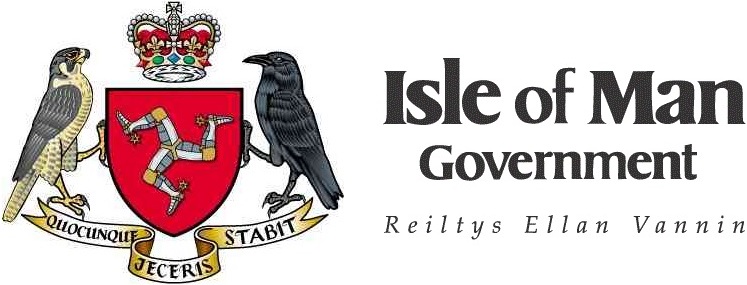Gambling legislation reforms
Inspection & investigation consolidated powers
General commentary on the descriptions of changes in this consultation
The commentary below focuses solely on the substantive changes currently proposed in the FSA Bill and the GSC Bill. In the interest of keeping this document concise, it does not generally address consequential or ancillary amendments made to support the implementation of those substantive changes.
Please note that the descriptions provided are of the proposals as they currently stand. These may be subject to revision following the outcome of the public consultation or during the legislative process in the branches of Tynwald.
Inspection & investigation consolidated powers
New inspection and investigation powers are being introduced across the following five Acts, replacing the existing provisions currently in place:
- Gaming (Amendment) Act 1984 (section 12) (opens in a new tab)
- Casino Act 1986 (sections 12L & 19) (opens in a new tab) and the Casino Regulations 2011 (regs 5 & 16) (opens in a new tab)
- Gaming Betting and Lotteries Act 1988 (section 46) (opens in a new tab)
- OGRA (section 16) (opens in a new tab)
- AML/CFT Act 2018 (section 7, 8, 9, 10, 11, 12 & 13) (opens in a new tab)
The new powers will be introduced via a dedicated Schedule inserted into each of these Acts.
At a high level, the structure and content of the new powers are modelled on Schedule 2 to the Financial Services Act 2008 (opens in a new tab). The provisions are arranged in a logical sequence that reflects the increasing seriousness of regulatory intervention—beginning with routine powers of entry and inspection, and escalating to the use of search warrants where necessary.
The applicability of these powers to individuals changes based on the nature of the regulation of the Acts. For example:
- In Acts that apply only to entities which are licensed by the GSC (such as the Gambling (AML/CFT) Act 2018), the powers may be exercised in relation to individuals only for the period during which they were engaged in the regulated activity
- In Acts that regulate gambling activity more broadly, regardless of licensing status (such as OGRA), the powers may be exercised irrespective of whether the individual held a licence at the time
These powers may also be exercised in relation to former licence holders.
New inspection & investigation powers layout of Schedule
Paragraph 1 (Power of the Commission)
This paragraph outlines the purpose for which the Gambling Supervision Commission (GSC) may exercise its inspection and investigation powers, as well as the categories of persons to whom these powers may apply. The stated purpose will vary depending on the specific Act in which the Schedule is inserted, but in all cases it will align with the overarching purpose of that Act.
For example, under the Online Gambling Regulation Act 2001, the Commission’s powers under this Schedule are exercised for the purpose of regulating online gambling in the Isle of Man (as set out in section 1 of that Act). Accordingly, these powers may be exercised in relation to any person engaging in online gambling within the Island, regardless of whether they hold a licence, since the Act regulates the activity itself rather than only licensed operators.
By contrast, under the Gambling (Anti-Money Laundering and Countering the Financing of Terrorism) Act 2018, the powers are intended to support the GSC’s role in conducting AML/CFT inspections and investigations of licensed entities. In this context, the powers apply specifically to those entities licensed by the GSC, reflecting the Act’s focus on ensuring that licensed gambling activity complies with AML/CFT obligations.
Paragraph 2 (Entry and inspection)
This provision establishes a statutory right of entry for authorised persons to access office premises for the purpose of inspecting books, computers, equipment, or any other items that contain or relate to information. Authorised persons may take copies or, where necessary, originals, of any relevant material encountered during the inspection.
An authorised person may also be accompanied by others, as deemed necessary to support the inspection.
Entry into private dwellings is permitted under two conditions:
- (1) The occupier must provide consent; and
- (2) A minimum of 24 hours notice must be given prior to entry
Paragraph 3 (Requests for information, including for regulatory inspection purposes)
This paragraph empowers an authorised person to request information from any individual or entity involved in, or reasonably suspected of being involved in, online gambling. This includes, but is not limited to, customers, service providers, companies within the same group structure, related companies, and associates.
Requests directed at entities that are not themselves the licensed operator will only be made where such requests are necessary and proportionate to the regulatory purpose.
The term ‘related companies’ adopts the definition used in the Financial Services Act 2008. In essence, it refers to any company (other than a subsidiary) in which the licensee holds at least 20% of the voting shares.
Paragraph 4 (Power of the Commission to require information)
This paragraph represents an escalation from routine inspection to formal investigation. It empowers an authorised person to require an individual to attend an interview at a specified time and place, for the purpose of answering questions and providing information in any format in which it is held.
The authorised person may take possession of, or make copies of, any information disclosed during the course of the interview.
The exercise of this power is subject to judicial oversight: an application must be made by the authorised person to a justice of the peace, who must approve the use of this power before it can be exercised.
Paragraph 5 (Entry to premises under warrant)
This paragraph provides for an authorised person to apply for a search warrant to enter premises under specified circumstances. Typically, this power will be used where an individual has failed to comply with a requirement under Paragraph 4, or where the use of earlier powers may risk prejudicing an investigation, for example, by leading to the destruction or alteration of evidence.
A warrant may also be sought to facilitate entry into private dwellings or premises where the occupier is absent and forced entry may be required. During the execution of a warrant, authorised persons may seize or copy any relevant information found on the premises.
An authorised person may be accompanied by others as deemed necessary to assist with the search. However, a constable must always be present during the execution of a search warrant.
A warrant must be applied for and granted by a Deemster before this power can be exercised.
Paragraph 6 (Seized goods)
This paragraph provides that any item seized or otherwise removed under the powers set out in Paragraphs 3 or 5 must be notified to the owner. It also establishes a general power permitting the retention of such items for as long as is necessary to fulfil the purpose for which they were obtained.
Paragraph 7 (Evidence of authorisation)
This paragraph provides the power for the Commission to authorise, in writing, any person to carry out its functions under this Schedule. It is intended that such authorisations will primarily apply to officers of the GSC working within its general supervision and enforcement teams.
Additionally, this paragraph requires that any person acting under such authorisation must, upon request, produce evidence of their written authorisation.
Paragraph 8 (Offences)
This paragraph establishes a range of offences in connection with the exercise of the inspection and investigation powers set out in this Schedule. These include:
- Obstructing or failing to cooperate with an authorised person on site (either under paragraph 3 (entry and inspection) or paragraph 6 (search warrant)
- Failing to comply with any requirements imposed under paragraph 5 (Power of the Commission to require information)
- Knowingly destroying, concealing or falsifying information that a person knows or suspects would likely be required for an upcoming inspection or investigation to which they are privy. It will be a defence to prove that there was a lack of intent in the case of concealment in relation to the upcoming inspection or investigation
- A new related offence will also be included, for providing false or misleading information, or recklessly providing false or misleading information. This offence will apply to all of the powers in this Schedule, as well in any other context in the Acts that require information to be furnished to the GSC (e.g. during the application process) -as such this offence won’t specifically sit within this Schedule and will sit in the main body of the Act (this doesn’t affect its applicability to these inspection & investigation powers)
All offences related to the exercise of these inspection and investigation powers, including the general offence concerning the deliberate or reckless provision of false or misleading information, will be subject to a right of appeal. The Gambling (Amendment) Act 2006 has been amended in consequence.

